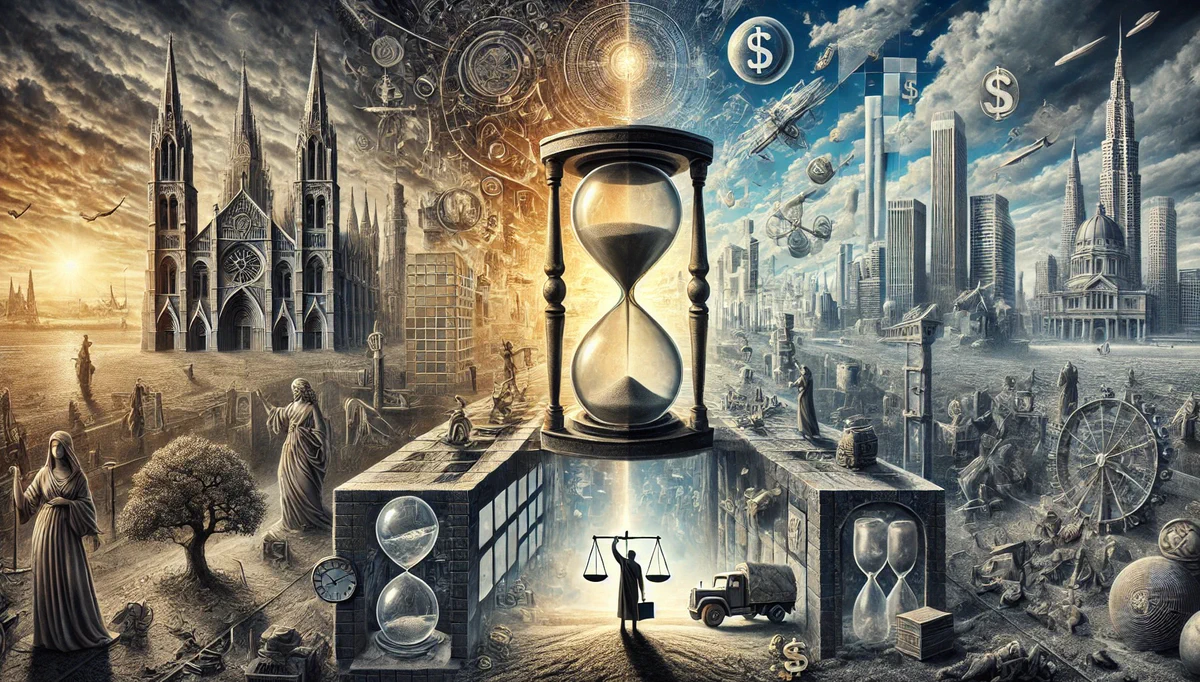The Unbearable Heaviness of Being (Part I)
 Image credit: Harrison Youn
Image credit: Harrison Youn
From one perspective, human history can be viewed as a continuous struggle against the status quo–an unyielding refusal to be confined by the given conditions of reality. Were medieval religious truth still inviolable dogma, how would humanity ever have ventured into the cosmos? Had slavery persisted as an unchallenged institution, how would the great revolutions of emancipation ever have emerged? Throughout the arc of history, human beings have confronted the weight of prevailing systems, pushing beyond their inherited horizons and striving toward a more expansive existence.
Yet, we must acknowledge a disquieting point: we do not live in reality per se; rather, we inhabit the reality we believe to be real. As Umberto Eco once suggested, reality is what it is precisely because it remains indifferent to our desires. What, then, is the nature of the reality in which we find ourselves?
A historically dominant worldview often rests upon a grand structure–an overarching framework that presumes to explain the world in its entirety. Medieval determinism grounded itself in a transcendent, omnipotent entity that governed every event. Such a fixed architecture of belief provided a sense of total comprehension, as if grasping the formal system itself would grant full understanding of the world. But there is a crucial distinction we must not overlook: a worldview is not the world itself. The conviction that mastering some form or system grants one access to the ultimate truth remains just that–a conviction, not the cosmos.
How, then, do we define our reality? From another vantage point, it resides in the prevailing values that shape society at a given historical moment. In the Middle Ages, religion embodied this supreme value; in the modern era, science claimed that exalted position; in our contemporary age, money and capital appear to stand at the pinnacle. Each epoch enthrones a principle so compelling and omnipresent that it becomes, for many, the very substance of reality.
Friedrich Nietzsche’s perspectivism penetrates this problem with radical depth. He rejected the notion of objective, absolute truth, proposing instead that knowledge and meaning emerge from the complex interplay of historical, cultural, and individual perspectives. In other words, truth is not a fixed entity but a ceaselessly shifting amalgam of interpretations, each molded by the observer’s desires, background, and position. Our world, far from being a stable given, is perpetually reconstructed according to the angles from which we choose to gaze.
Nietzsche’s line of thought extends beyond epistemology into the very attitude we take toward life and value. Consider his profound challenge: “If every moment of your life, every choice, every joy and every sorrow, were to recur eternally, would you embrace this existence?” This thought experiment–central to Nietzsche’s concept of the eternal recurrence–forces us to confront existence without the solace of ultimate redemption or escape. Rather than passively receiving life’s contours, Nietzsche urges us to affirm them. It is the ethos of Amor fati–the love of fate–that enables us to transfigure brute circumstance into a canvas for meaning-creation. No longer passive beneficiaries of fate, we become architects, forging significance through our own interpretative will. In this sense, existence gains its weightiness precisely through our endless reinterpretation and revaluation of its moments.
In Nietzsche’s vision, the doctrine of eternal recurrence imbues every action, every experience with an unimaginable gravity. Without the promise of a final judgment, heavenly respite, or rational utopia, we face the chilling possibility that everything recurs ad infinitum. Each careless gesture, each missed opportunity, each moment of cruelty or generosity, repeats forever. Beneath this terrifying panorama, the comfort of fleeting happenstance vanishes. Instead, existence becomes a sphere of profound ethical consequence. The lightness of mere chance is replaced by the crushing heft of infinite repetition, compelling us to assume absolute responsibility for the lives we are living.
This existential weight does not offer refuge, solace, or deliverance. It eradicates the escape routes promised by religious teleology or progressive optimism. Now, faced with the void, humanity must craft its own lodestar. Meaning is no longer dispensed from on high; we are tasked, under the stern gaze of eternity, to invent and affirm it ourselves. Overwhelmed by the burden of infinite recurrence, we have no choice but to engage in fierce inner struggles, forging authentic values from the raw materials of our own will.
In turn, life itself is transfigured. Every instant demands profound seriousness, for each moment’s decision echoes through an infinity of identical cycles. Paradoxically, this crushing awareness paves the way for a form of liberation: within the boundless repetition, we discover the power to create and assign meaning rather than passively awaiting it. The existential heaviness of being, then, becomes the gravity that steadies us. We forfeit the airy freedom of inconsequence and, in return, gain the immeasurable depth of self-affirmation and creative valorization. In embracing the eternal heaviness of existence, we learn to bear and even to love our fate, seizing our place as active participants in the endless act of becoming.